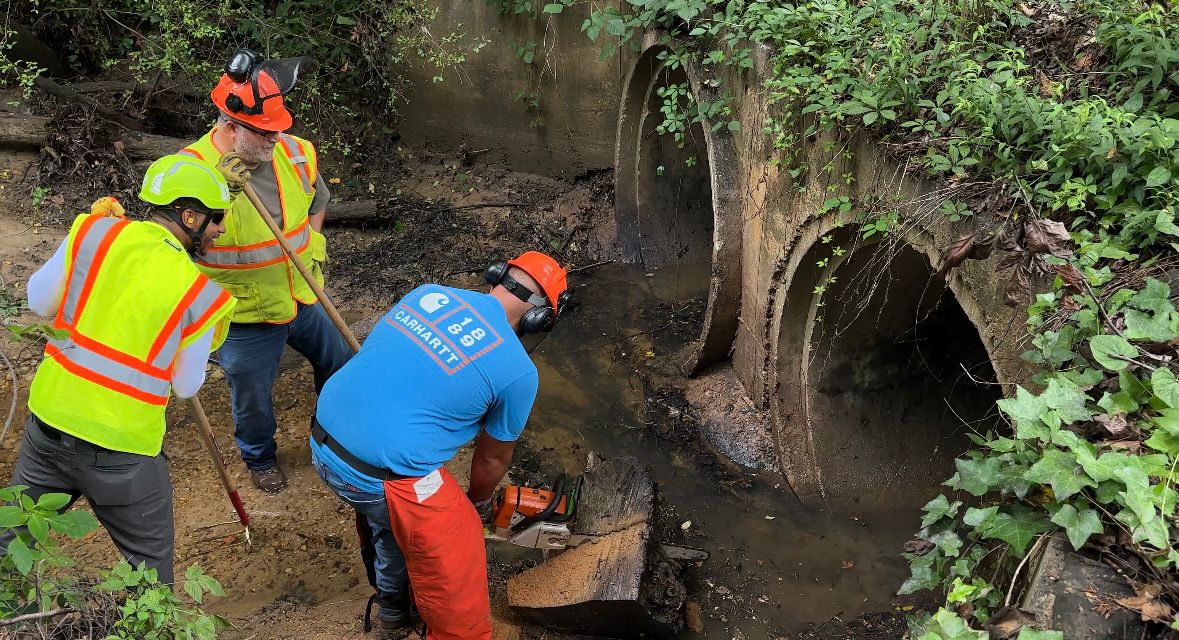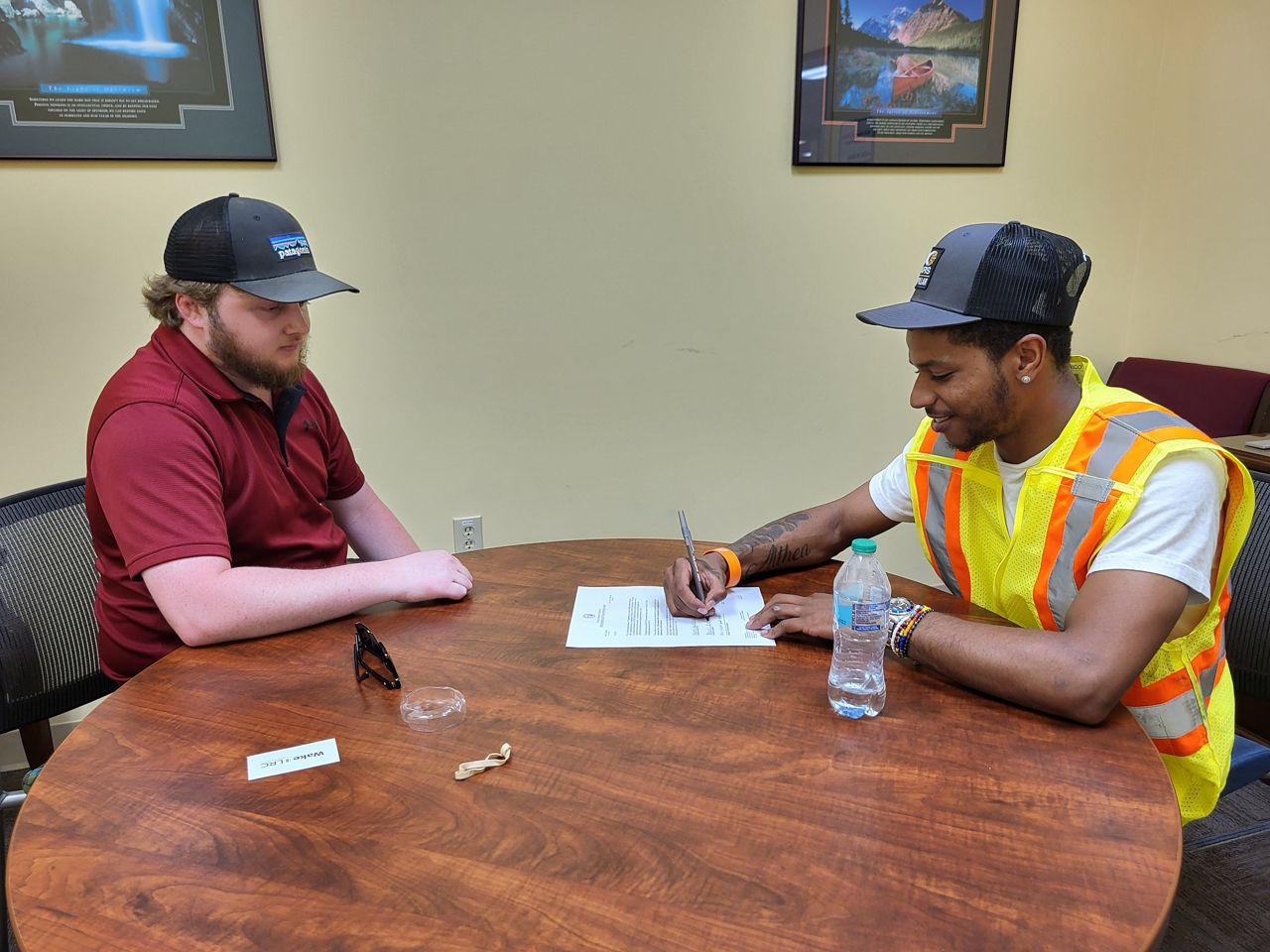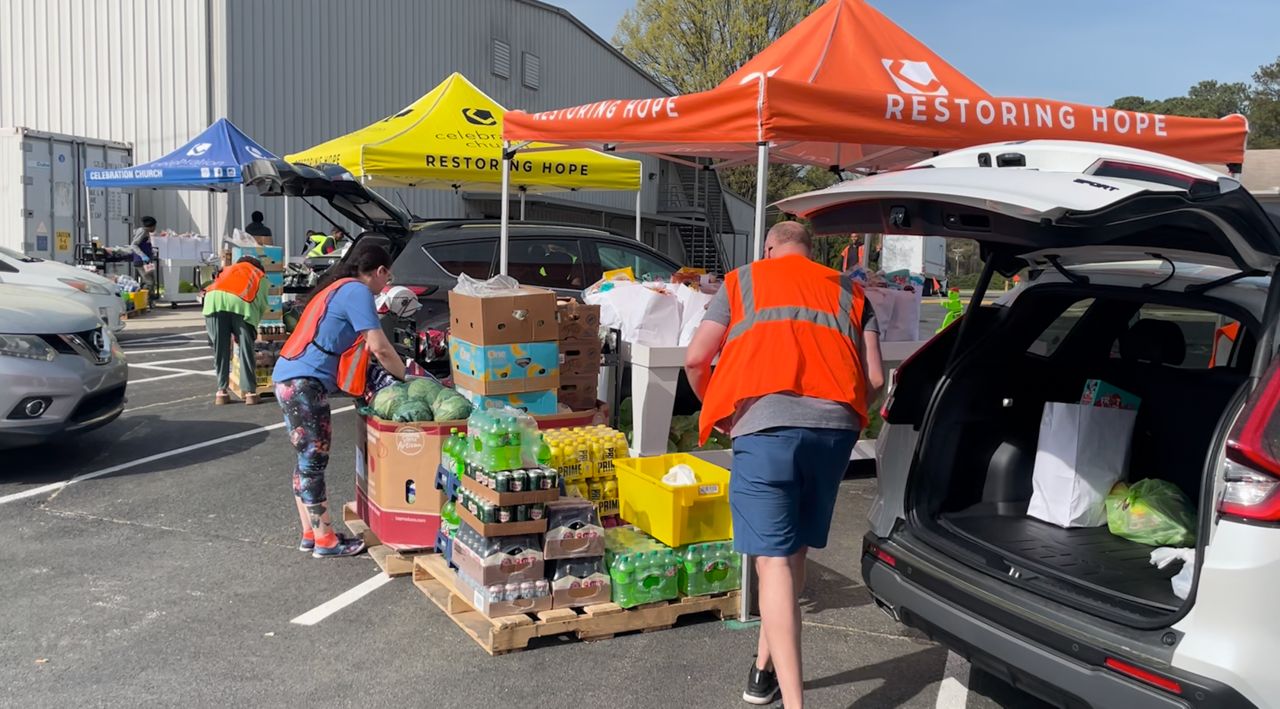RALEIGH, N.C. — Each year, more than 18,000 people are released from North Carolina adult correctional facilities, according to the state.
Gov. Josh Stein is continuing to support Reentry 2030, an initiative established in an executive order last year from then-Gov. Roy Cooper.
What You Need To Know
- The North Carolina Department of Transportation's Transitional Work Pilot Program just finished its first session
- The program helps those who are looking for work after incarceration
- All five of the first participants had job offers after completing the program
- The next session is in Asheville and starts June 9
The order calls on state agencies to improve reentry services for formerly incarcerated people having trouble finding jobs, health care, housing and other services.
The state Department of Transportation is one of the agencies supporting this order
Reentering society after incarceration can be challenging for many.
“Job opportunities was hard, because I was a felon, I was a recent felon,” Jahwon Hartsfield said.
Despite his previous jobs in a variety of fields, Hartsfield struggled getting his foot in the door.
“Coming out, got to make money, got to feed my family,” Hartsfield said.“Coming out, got to make money, got to feed my family,” Hartsfield said. “It was hard in the beginning and NCDOT gave me an opportunity.”
He now is an Department of Transportation Division 5 employee.
Hartsfield’s probationary officer told him about the department’s Transitional Work Pilot Program. It was created through an agreement between the N.C. Department of Adult Corrections and transportation department.
“We’re always looking for folks to come work for NCDOT, particularly in this role, which is a transportation worker one,” Division 5 maintenance engineer Doug McNeal said.
The pilot program lasts for two weeks and is tailored to those who have recently been released from prison and are looking for a job.

“These jobs are available all across the nation, so we're really helping them get started in a career that they can take wherever they want to in life,” Rhonda Royster, workforce development manager for the department, said.
Securing these jobs is always easy. In North Carolina, 49% of formerly incarcerated people were employed within a year of release compared with 61% of all individuals ages 16 and older. Nationally, the U.S. Department of Justice says employment for people getting out of prison can become harder with every year that passes.
“We have had these efforts for many, many years. But adding the executive order to this effort really helped us propel forward and to enhance the program. This is a pilot, but we hope to grow this,” said Tunya Smith, director for the department's Office of Civil Rights who oversees the on-the-job training program.
Through the pilot program’s collaboration and guidance of the department's On-the-Job Training Program and the Highway Construction Trade Academy, participants get hands-on experience to set them up for success for employment with the department or a contractor.
According to department, the Highway Construction Trade Academies for those who were previously incarcerated includes training for:
- CPR/first aid
- Work zone flagger
- Caterpillar heavy equipment operator
- OSHA 10
- Resume writing
- Mock interview practice
- Introduction to highway construction careers from entry level positions to higher skilled jobs like crane operation
All are free.
“They don't just sit in the classroom and watch a few videos. They do get some safety training in the classroom, because we really do focus on the safety aspect of this work. But in addition to that, they also get hands-on practice and each of those skills that they need so that they're ready to apply them as soon as they get a job,” Royster said.

While the department has multiple programs to help those looking for jobs, including high school students, it is still at an 18% vacancy rate across the state.
“We have needs everywhere, from our ports to our highways to our aviation, our ferries, our rail. We have opportunities in accounting and project management. So we're looking to recruit a skilled workforce that can meet the demands of today and really the demands of tomorrow,” Smith said.
At the end of the program, participants had an interview process with the department and contractors, and all five participants received offers.
“The folks that we interviewed that day were eager. They wanted to work. They were looking for an opportunity,” McNeal said.
Regardless of where participants ended up, the department says it’s a benefit to the state and to participants.
It's something Hartsfield said may not have been easy but is possible.
“It's not over, keep going. Believe in yourself. Apply yourself 100% and all you need is opportunity. That's all you need,” Hartsfield said.
The department has partnered with NC Works, Goodwill Industries and Local Re-Entry Councils.
The N.C. Division of Motor Vehicles is increasing its efforts to issue state ID cards for those eligible ahead of their release.
The Transportation Department says the next session of the program will begin Monday, June 9, at Goodwill Industries on Patton Avenue in Asheville.
“They needed that first step. They needed that first opportunity and were very appreciative and thankful to be able to help provide that opportunity,” McNeal said.











